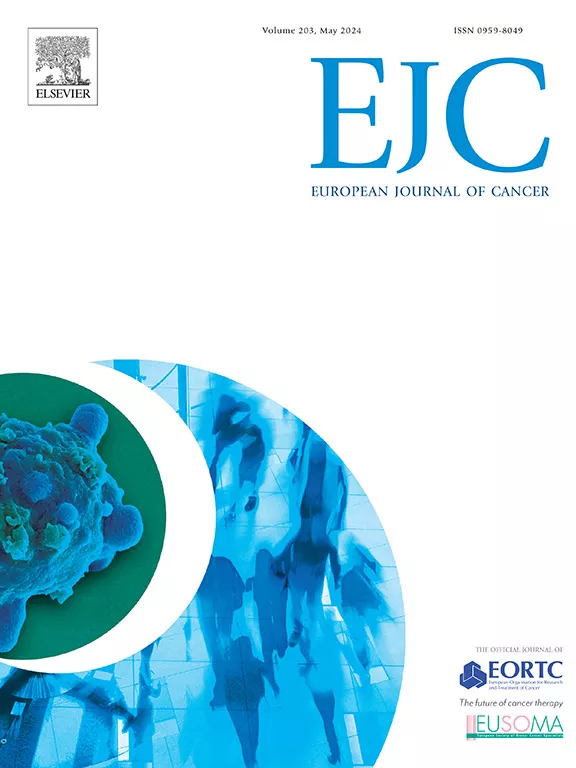In 1971, cervical cancer screening using cytology (Pap smear) was introduced in Germany for women aged 20 and over. Since then, the incidence of cervical cancer has fallen sharply, but has remained at a stable level over the past few decades. Earlier studies show that a lack of or irregular participation in cervical cancer screenings is a significant risk factor for developing the disease. For this reason, an organized program was initiated in Germany in 2020, whereby women aged 20 to 65 are reminded of the screening every five years. In addition, the screening method for women aged 35 and over was changed to a three-year cycle with a pap smear and an additional test for human papillomavirus (HPV test) (cotesting).
As part of the TeQaz study, the Chair of Epidemiology headed by Prof. Dr. Stefanie Klug has now examined routine cytological smear tests as part of opportunistic cervical cancer screening in nine federal German states. This is a case-control study which examines the frequency of participation in cervical cancer screening and the quality of cytology. The results on the quality of cytology were published under the title "An audit of 1632 routinely collected cervical cancer screening smears from 398 women in Germany: Results from the TeQaz Study" in the "European Journal of Cancer". The journal has an impact factor of 8.4.
"From a previous analysis of this study, we knew that around 50 percent of women with cervical cancer had undergone cervical cancer screening in the form of a Pap smear at least every three years in the ten years prior to their diagnosis," explains Dr. Luana Fiengo Tanaka, Research Associate at the Chair of Epidemiology and first author of the publication. "We therefore hypothesized that this could be due to improper treatment of precancerous lesions, i.e. a tissue abnormality (after a positive Pap smear result) or precancerous lesions that were missed during screening (a false negative Pap smear). In this study, we therefore investigated the quality of screening of Pap smears in Germany. To this end, we retrieved and re-evaluated 1,632 Pap smears from 392 women with and without cervical cancer."
The overall prevalence of positive results in the routine examination was 4.5 percent. However, during the review, independent experts found that the number of positive cases was 7.7 percent. Looking at the three years prior to diagnosis or the start of the study, this prevalence even increased to 11.9 percent. Accordingly, there were clear quality problems with the Pap smears, which gave both the patients and the treating gynecologists a false sense of security. These quality deficits are due, on the one hand, to problems with the correct classification of smears with abnormal cells and, on the other, to inadequate sample collection.
"This screening method is all about proper collection (form of technique and instruments), fixation, preservation and evaluation," says Dr. Tanaka. "Errors in just one of the steps can lead to either an inappropriate sample or an incorrect result, missing an opportunity to prevent cervical cancer."
The results of the study therefore show that the Pap smear alone has its limitations as a screening method. Prof. Klug therefore suggests: "Cervical screening should move away from Pap smear screening and towards more objective methods such as primary screening for high-risk HPV. This could improve the detection of abnormal findings, which can then be followed up and, if necessary, treated before they develop into cervical cancer."
To the homepage of the Chair of Epidemiology
To the publication „An audit of 1632 routinely collected cervical cancer screening smears from 398 women in Germany: Results from the TeQaz Study“ in the „European Journal of Cancer”
To the publication “Impact of opportunities screening on squamous cell and adenocarcinoma of the cervix in Germany: A population-based case-control study” in the Journal “PLOS ONE”
Contact:
Prof. Dr. Stefanie Klug
Chair of Epidemiology
Georg-Brauchle-Ring 56
80992 München
phone: 089 289 24950
e-mail: sekretariat.klug.epidemiologie(at)mh.tum.de
Dr. Luana Fiengo Tanaka
Chair of Epidemiology
Georg-Brauchle-Ring 56
80992 München
phone: 089 289 24960
e-mail: luana.tanaka(at)tum.de
Text: Romy Schwaiger
Photos: “European Journal of Cancer”/Astrid Eckert/TUM/private


